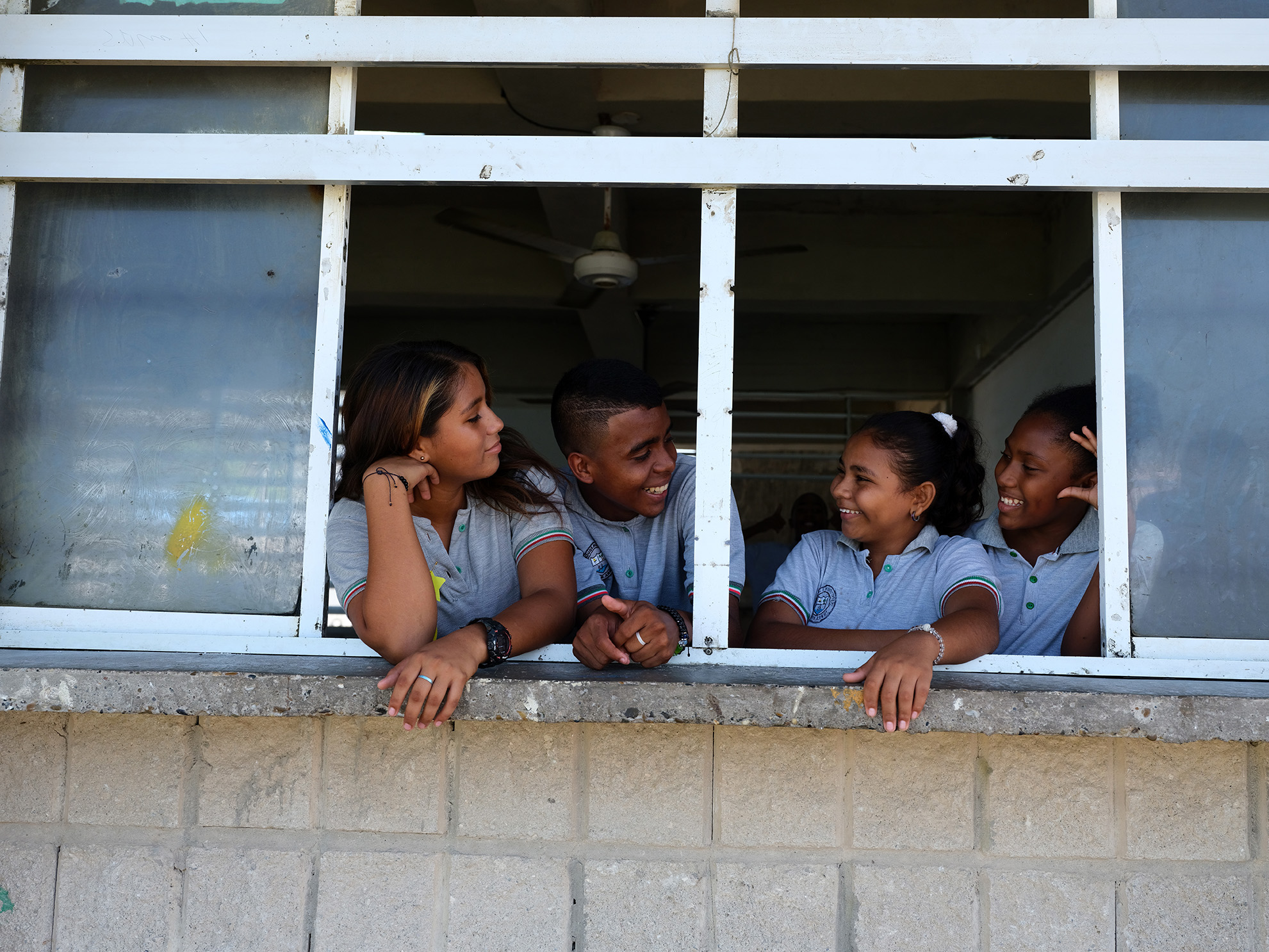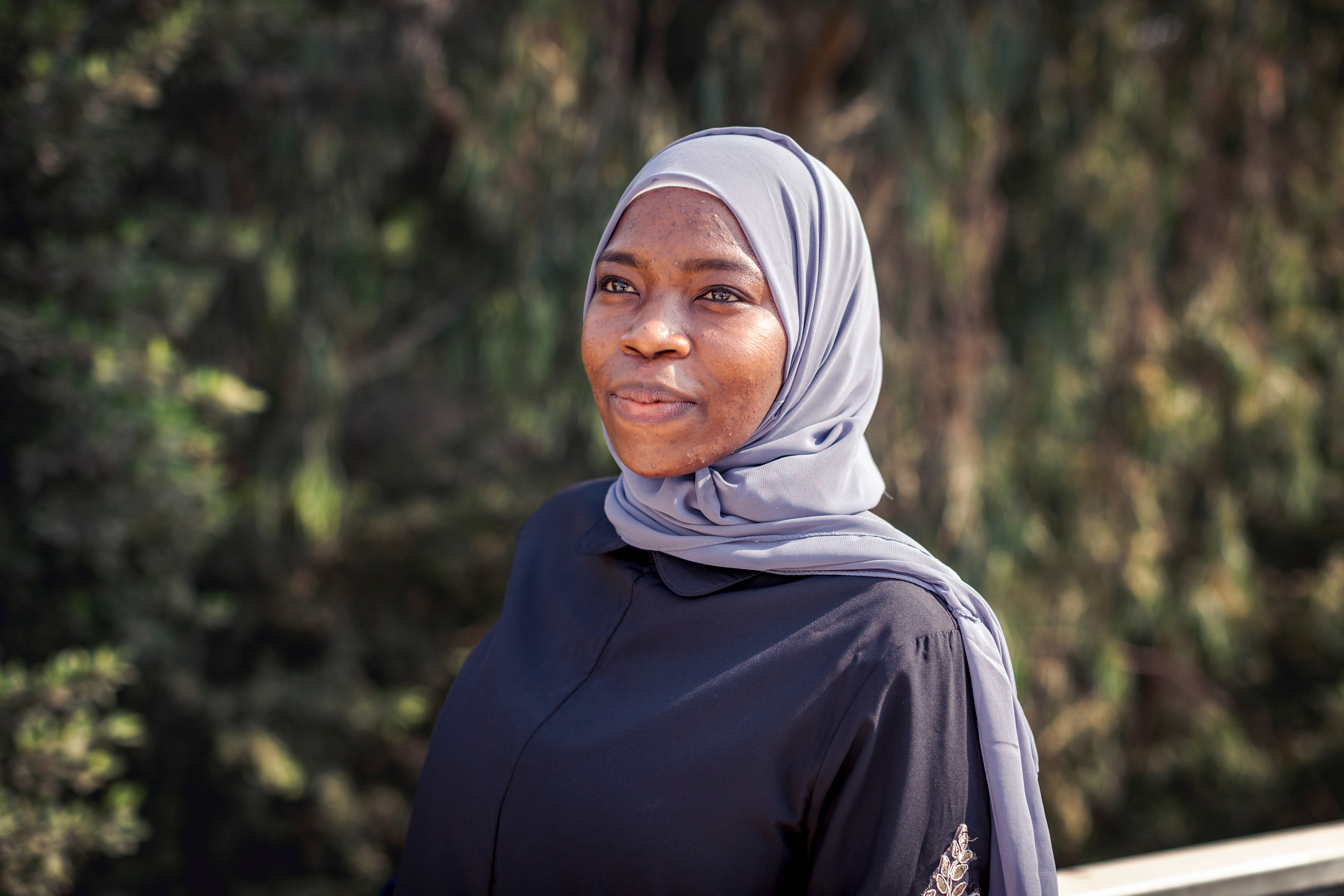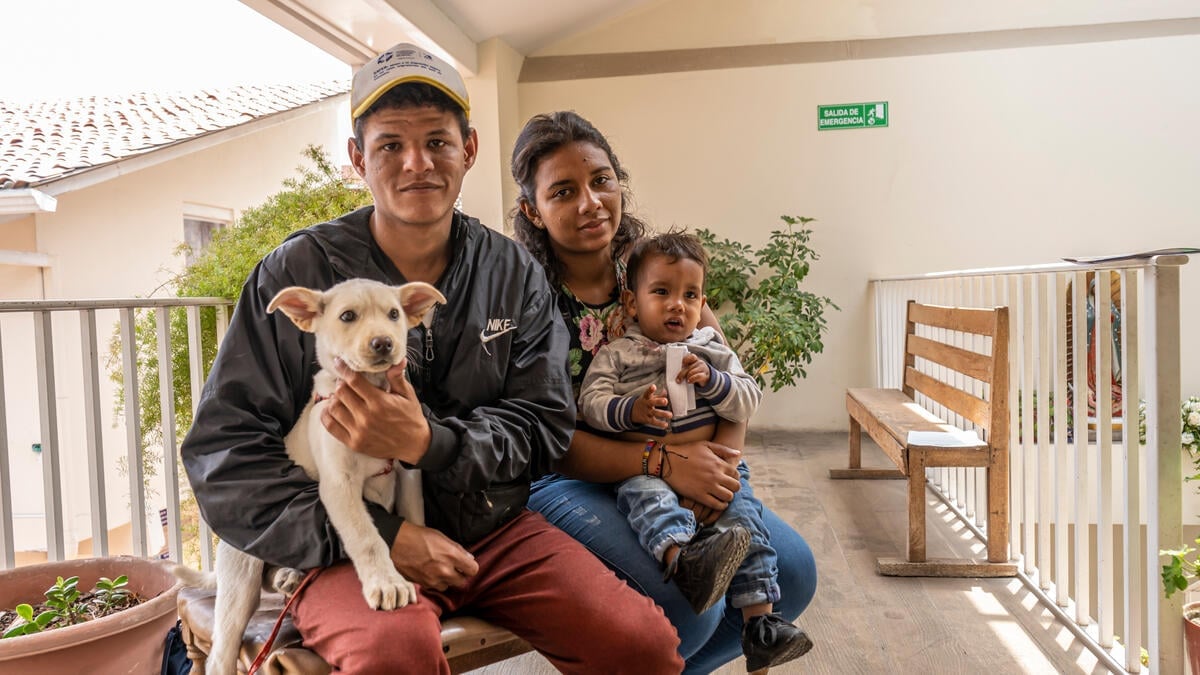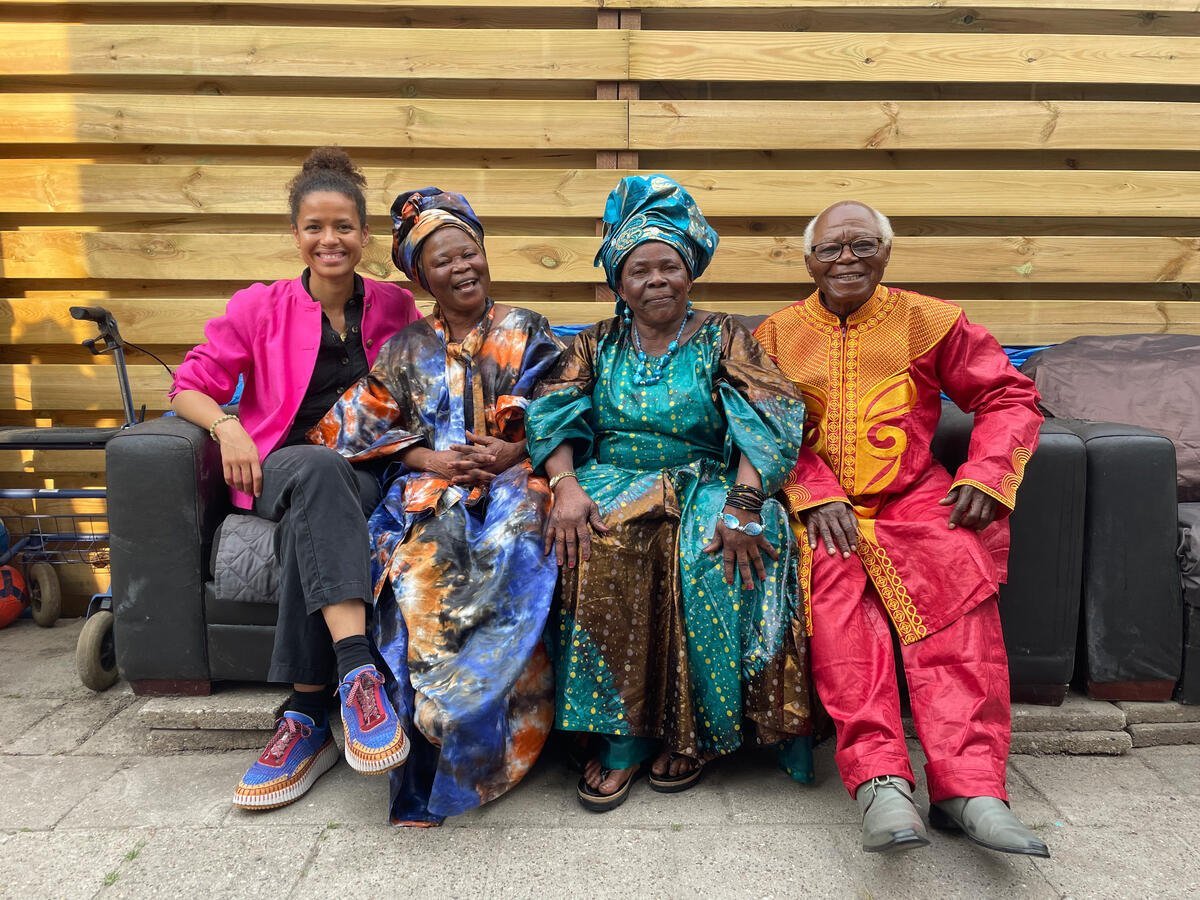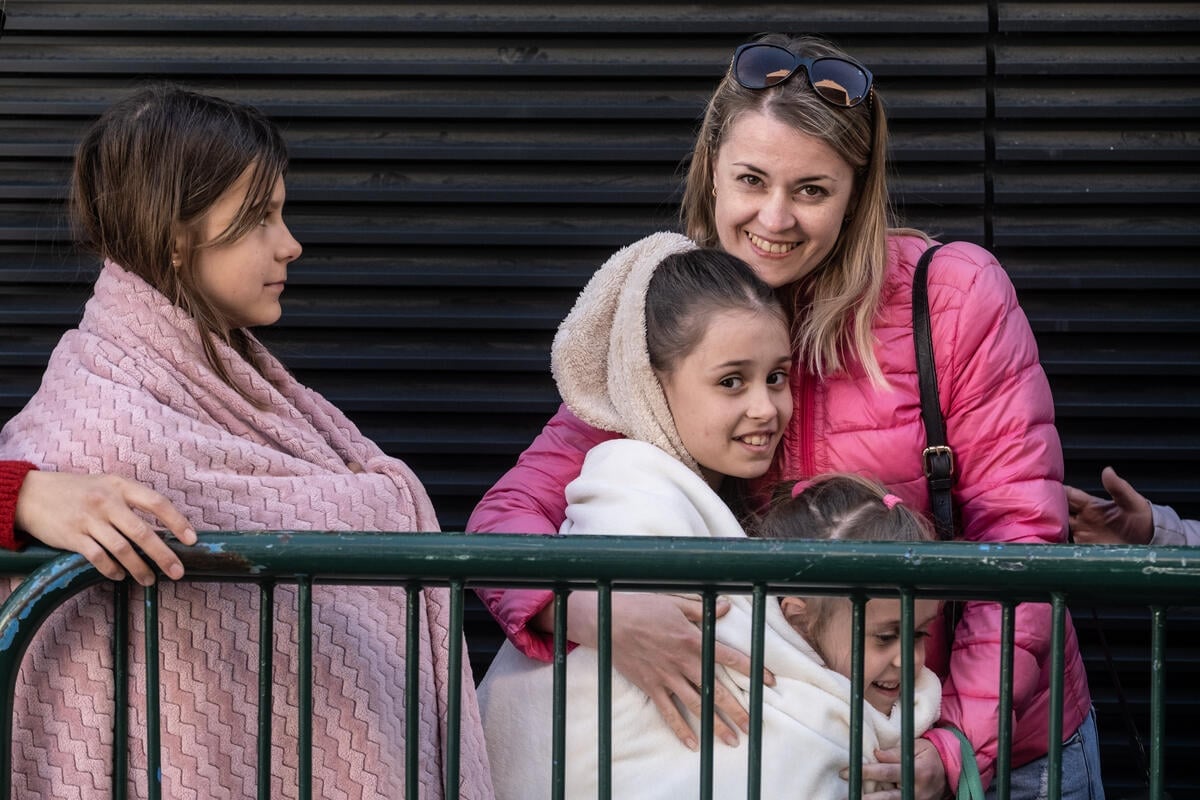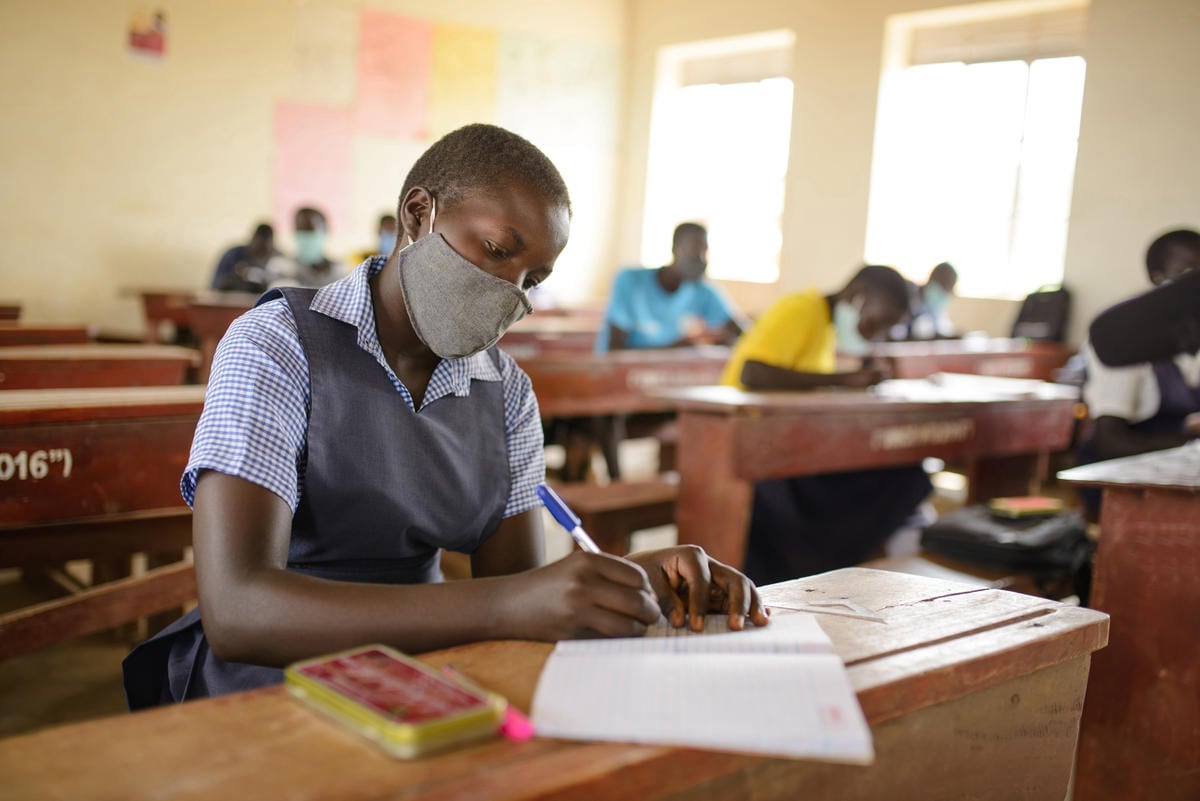A dream to rebuild

A dream to rebuild
Alaa is hard at work on her architectural model, now in the final stages of construction. She is designing a social housing project that would provide low-cost homes for 65 families. And just to the right of the houses, represented by small black wooden blocks, are student residences.
“I liked the idea of integrating new people into the neighbourhood, mixing the local community with students,” Alaa says. Pointing to a green area in front of the buildings, she adds: “And this open space is where both communities can meet and get to know each other.”
Alaa, a third-year architecture student at the University Institute of Lisbon (ISCTE), is clearly proud of what she has been able to achieve. She comes from Syria, where, after two years at university in Damascus, she interrupted her studies to escape worsening security conditions.
She left, alone, to Istanbul, Turkey. But the pressures of learning a new language, finding work to support herself and negotiating her way into higher education were overwhelming. Determined not to give up, she tried once again in Cairo, but it was the same story.
Then, in September 2013, she saw a post online that would change her life: an open call from a non-profit initiative called Global Platform for Syrian Students. It was offering scholarships to Syrian students to complete their university degrees. Alaa could not believe this was possible.
“I applied, but everyone was telling me that it had to be fake – there was no way there could be a scholarship just for us, but I didn’t want to lose the chance so I sent my application,” she says.

Just four months later, Alaa heard she had been accepted. But her parents refused. Persuading them to allow her to travel alone to Turkey had been hard enough, but Europe, they said, was out of the question. Unable to defy their decision, Alaa informed the scholarship fund.
Helena Barroco, its Secretary-General, decided not to close her place: “I realized Alaa was very keen, but I also knew that this was a pilot project in its first year and that perhaps, after some testimonials from female students from the first group, and more public knowledge from the programme, maybe her parents would allow her.”
The next year, when a second call for scholarships went out, Alaa’s parents agreed. Months later, she was in Portugal, mixing with students from around the world and living in an entirely new culture.
“Alaa is like our family… She has taught me so much about Syria and the Muslim world.”
“Being in Portugal and getting help from people totally changed a lot of things inside of me,” she says. “I saw a lot of differences in the food, culture and the way that people react and think. It taught me that life is not about right and wrong; it is about different views.”
Barroco sees the Global Platform for Syrian Students as offering a win-win opportunity, because both students and local communities are exposed to different cultures and are subsequently enriched by the exchange. She also believes that finding innovative ways to deal with the five-year-old Syria conflict had become a necessity.
“We made an option to go ahead with scholarships, because if you don’t use war time to train the new generation of leaders, you don’t afterwards have the possibility of using these people to go back and rebuild.”
Since 2014, the Global Platform for Syrian Students has been able to provide scholarships for 150 students who are now studying in 10 countries across the world. The initiative, originally the idea of former Portuguese President, Jorge Sampaio, now plans to propose a rapid response initiative for higher education in emergency.
A lifesaver for Alaa and scores of others like her, the scholarship programme promoting pathways for admission for significant numbers of Syrian refugees is also welcomed by UNHCR, the UN Refugee Agency, which is holding a high-level meeting on the topic on March 30 in Geneva.
Alaa has now been in Portugal for 18 months, and she views Lisbon as her second home. She lives with a retired Portuguese couple, Luis and Teresa Henriques, who decided to host Syrian students in their home. With all their children married and long gone, they wanted to find a way to help with the Syria crisis.
Teresa admits that she was cautious at first, but she hasn’t looked back. “Alaa is like our family, and she has made friends with our children and grandchildren. She has taught me so much about Syria and the Muslim world. It has changed how I view the region.” Luis’s sister, inspired by their example, is now also hosting a Syrian student.
Alaa still has one more year left to complete her BA and hopes next year to apply for an integrated Master’s degree in architecture. She has clear ambitions for her future: “As an architect and educated woman, I will make a [difference] everywhere, but of course Syria will be my first objective because it is my country. But also Portugal is my second country, because I cannot forget what those people do for me.”
Her next project, she says, will focus on improving designs for prefabricated houses for refugees.







